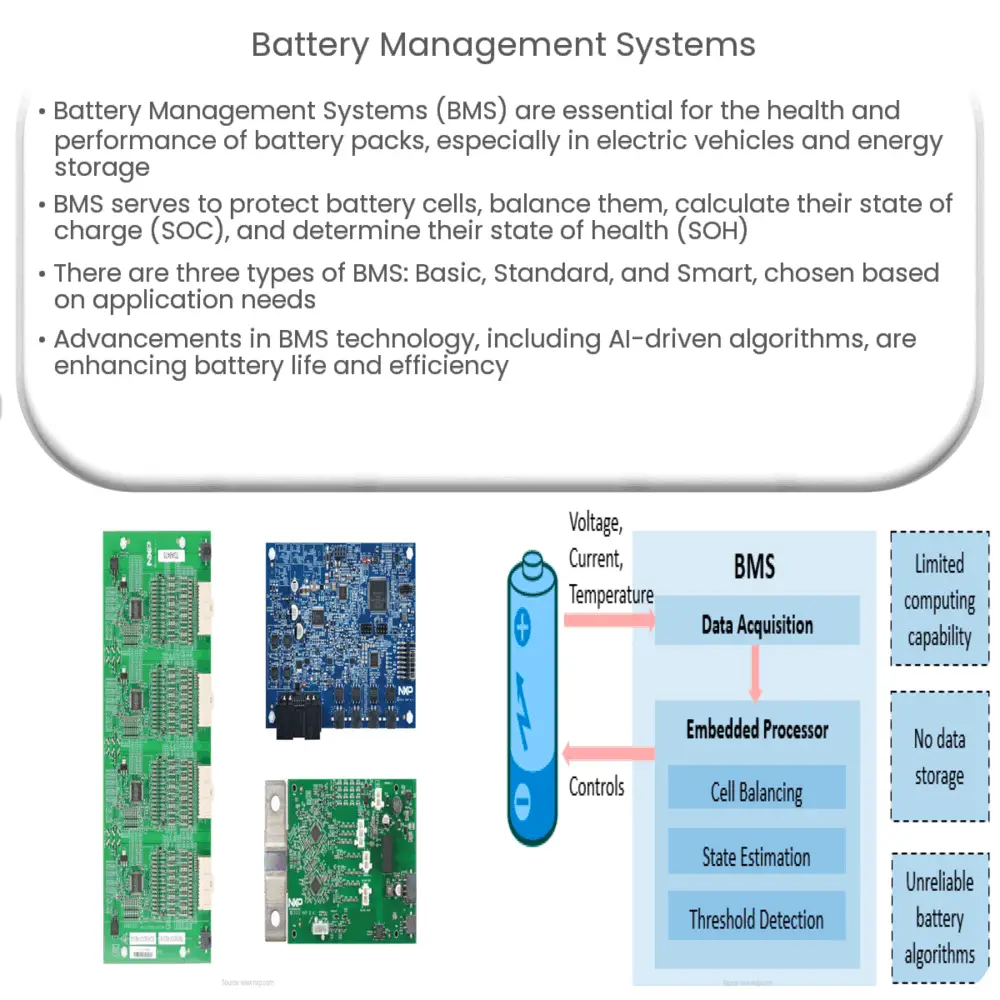Explore the crucial role of Battery Management Systems (BMS) in optimizing battery performance, safety, and longevity.

Battery Management Systems: An In-depth Examination
Battery Management Systems (BMS) are an integral component in the proper functioning and longevity of battery packs, particularly in applications such as electric vehicles and renewable energy storage systems. The primary role of a BMS is to safeguard the battery pack from damage, optimize its performance, and ensure its longevity.
Understanding Battery Management Systems
A Battery Management System is essentially a sophisticated electronic system that manages a rechargeable battery. Its objective is to monitor the battery’s state, calculate secondary data, report that data, control the environment, authenticate it, and / or balance it.
Key Functions of a Battery Management System
Types of Battery Management Systems
Based on their complexity and features, battery management systems can be divided into three main types:
- Basic BMS: These are the simplest form of BMS and include features such as overvoltage and undervoltage protection, overcurrent protection, and overtemperature protection.
- Standard BMS: This type of BMS includes all the features of a Basic BMS along with cell balancing functionality, charge control, and communication with other systems.
- Smart BMS: The most sophisticated form of BMS, a Smart BMS includes all the features of a Standard BMS and adds complex functions such as precise State of Charge (SOC) and State of Health (SOH) calculation, predictive maintenance, and advanced diagnostics.
The choice of BMS depends largely on the specific needs and requirements of the application in question.
Selection Criteria for a Battery Management System
Choosing the right BMS for a particular application can be a complex task, and involves the consideration of several important factors:
Advancements in Battery Management Systems
With rapid advancements in technology, today’s Battery Management Systems have become increasingly intelligent. From integrated wireless communication to artificial intelligence-driven algorithms that improve battery life and performance, modern BMS technologies are playing a crucial role in powering a wide range of applications. Innovations in BMS technology continue to pave the way for safer and more efficient energy storage systems.
Conclusion
In conclusion, Battery Management Systems (BMS) are a vital element in managing and optimizing the performance of rechargeable batteries. They offer significant advantages in terms of battery safety, longevity, and overall performance. With evolving technology and increasing demand for battery-powered applications, the role of advanced BMS systems is expected to grow even more paramount. The ability of a BMS to adapt to various battery chemistries and application requirements, while also integrating advanced features, will be critical in meeting future energy storage needs. Whether it’s for electric vehicles, renewable energy storage, or portable electronic devices, the Battery Management System will continue to be an integral part of our energy future.

